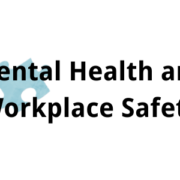Considering the Olympics – Health vs. Safety
What the workplace can learn from Rio 2016
Like many, I have thoroughly enjoyed watching the Olympics in Rio over the past few weeks and would like to congratulate team GB on their brilliant performance alongside all the other nation’s exceptional athletes.
That said, anyone who has been watching this year will have seen their fair share of falls in the cycling, injuries in the gymnastics and other slip ups. Could we prevent these accidents and would such a response be reasonable or hamper the sporting activities?
In my opinion a common sense risk management approach is always the way; could the downhill sections of some of the cycling have been better managed? Possibly. Would this have prevented the possibility of injury to a cyclist travelling at these speeds in close proximity to others? No. So reasonably practicable measures should be the way.
Safety is always integral to our wellbeing in any profession but it shouldn’t stifle exercise and healthy pursuits in the process; this is as true of the common workplace as it is an Olympic athlete.
How do workers benefit from sport, fitness and good health?
How do we as employers and employees benefit from sport and keeping ourselves fit and healthy? It has been known for some time now that just being in work is good for our health and wellbeing, but many employers have been slow to recognise that a healthy workforce is beneficial to them and their business.
So specifically how can a healthy workforce benefit you?
Considering the most obvious points, a healthy worker is less likely to be absent on sick leave and more likely to have improved morale; motivated employees that recover from sickness quicker are less lightly to suffer from long term illness and take extended time off work.
There are a number of other benefits of a healthy workforce, you could improve:
- Employee productivity.
- Business performance.
- Engagement of employees.
While also reducing:
- Incidents of work-related illness and accidents.
- Costs of sick pay.
- Insurance costs.
- Pressure on cover employees for absentees.
Encouraging a healthy workforce
To illustrate the severity of the typical workforce’s health problems it’s worth looking at the HSE’s related statistics:
“The sickness absence costs:
- UK Plc over £12 billion a year;
- Employers £495 a year in direct costs for every worker employed. Indirect costs are probably considerably more (CBI 2005 statistics)”
It’s important that we encourage employees to have a considerate diet, providing healthier food options in the workplace and educating them on the benefits of a healthy eating. Here at SHEilds we practice what we preach, providing free fruit for employees and encouraging good hydration with information posters and water coolers throughout the offices.
Encouraging staff to walk or cycle part or all of the way to work is also a great idea; this may cost you a cycle shed and shower facilities, however these are one off costs as opposed to the possible long term benefits which could be enormous.
15056 companies in the UK have signed up to the Bike-2-work scheme with great benefits for the employer including the following:
- Healthier and more productive staff members.
- A reduction in absence due to stress or illness.
- Savings on employer NI contributions (up to 13.8%).
- Reduction in carbon footprint.
- Administration of scheme at no cost.
- An attractive incentive for employees.
Meanwhile benefits for the employee include:
- Roughly 42% saved on the cost of bikes & equipment.
- Improved health and well-being.
- Losing weight and improving muscle tone.
- Cost is distributed over weekly/monthly interest free payments.
- Reduction on travelling costs.
- After sale service from selected bike shops.
It all starts with encouragement and communication
There are many other ways to encourage your workforce to follow a healthier lifestyle; incentive schemes, organising physical sporting events and encouraging employees who take part in charity sporting events by way of sponsorship or time off.
What’s important to keep sight of is the importance of communicating these benefits, a vital component of any well-being strategy especially when starting out. All companies big or small have the capability and responsibility to do this, it’s just a case of finding what efforts fit your business model.
Like the athletes competing in the Olympics we all have a duty to give it our best, striving to better ourselves now and in the future.
Stuart Nixon









Leave a Reply
Want to join the discussion?Feel free to contribute!